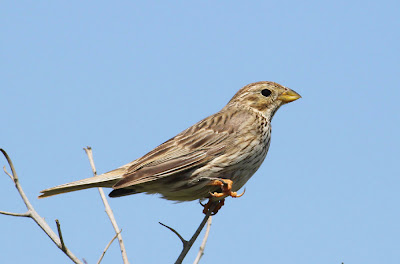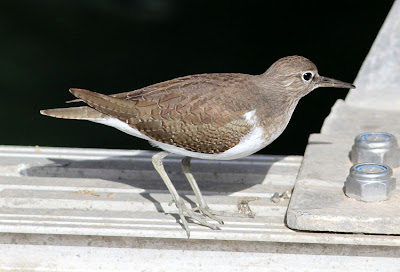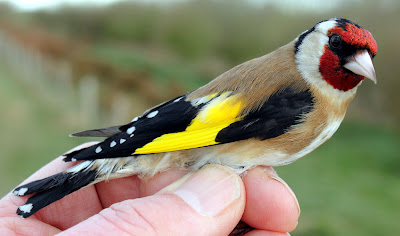As the plane splashed across the puddled runway towards the terminal building we knew it must be Manchester Airport. We were home. Two weeks of glorious Menorcan sunshine was over and normality beckoned.
To get the blog back up and running I’m posting a few pictures from the holiday and hope to catch up with fellow bloggers soon.
Most days were spent exploring again the rolling landscapes of the Menorca countryside, either on foot or by car. More often it would be both, stop-starting as particular spots or sightings lured us further into discovering the delights of this wonderful flower-filled island, a place where traditional farming and its associated birdlife is the norm.
Don’t forget to “click the pics” for a Menorca experience.
Spring flowers - Tirant, Menorca
Traditional farming - Menorca
Traditional farming - Menorca
Towards Cavallaria - Menorca
The roadside towards Cap de Cavalaria was a good place to find Tawny Pipit, Corn Bunting, Stonechat, Quail, Sardinian Warbler, Kestrels a-plenty, Short-toed Lark, Thekla Lark, Red Kites and Booted Eagles, the latter the commonest raptor of the island. Just one Red-footed Falcon seen in the two weeks, a later migrant and also one which arrives in poor weather and/or south-easterly winds. Egyptian Vultures can be seen almost anywhere on the island, especially so on the Cavallaria route but the clear skies of the two weeks kept both them and the Booted eagles high in the sky. And below is the best shot I could get of a distant Montagu’s Harrier as it sought insects above a recently cut field.
Sardinian Warbler
Corn Bunting
Tawny Pipit
Thekla Lark
Red Kite
Stonechat
Montagu's Harrier
In the first week of our holiday Woodchat Shrikes were very evident,
particularly on roadside wires from which they searched the ground below
for insect food. In the second week the shrikes were less visible with just local pairs noted rather then obvious migrants.
Woodchat Shrike
At one point we stopped the car to retrieve a Heerman’s Tortoise from the centre of the road and an approaching car. The tortoises lay their eggs in the spring so May is a time when lots of youngsters explore, so putting themselves in danger. The one below is probably some weeks old and not fully grown, but we also found some tiny individuals.
Heerman's Tortoise
Heermans’s Tortoise Testudo hermanni
Generally the pace of life in Menorca is slow so the tortoises probably have time to cross the road, as do the cattle.
Beware, Slow Cattle
All that walking and birding, leaning over gates in the dry and often dusty countryside makes for thirsty work.
Traditional Gate Menorca Style
Wash That Car
What Crisis? - Es Mercadal, Menorca
There’s more from Menorca soon and hopefully some local news when I get back in the swing of local birding.
Linking today to Stewart in Australia.


















































































